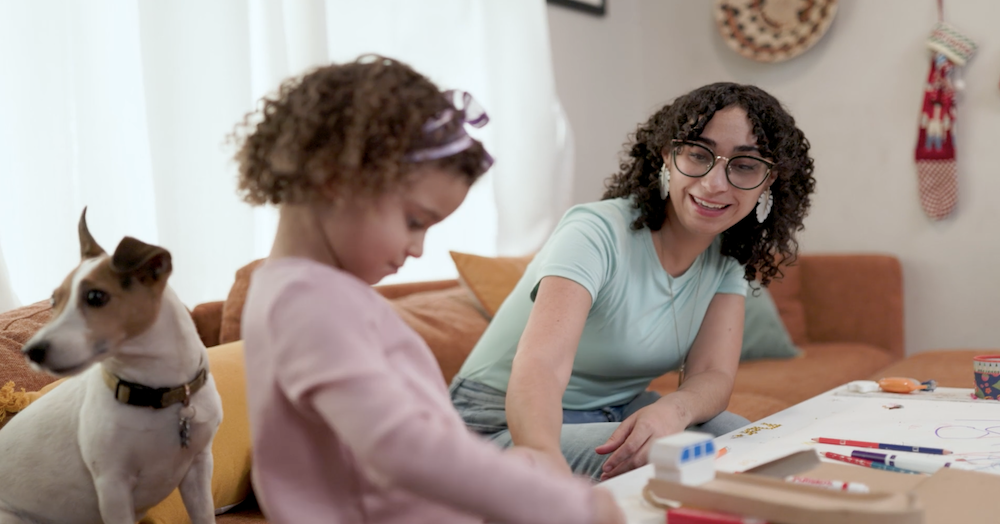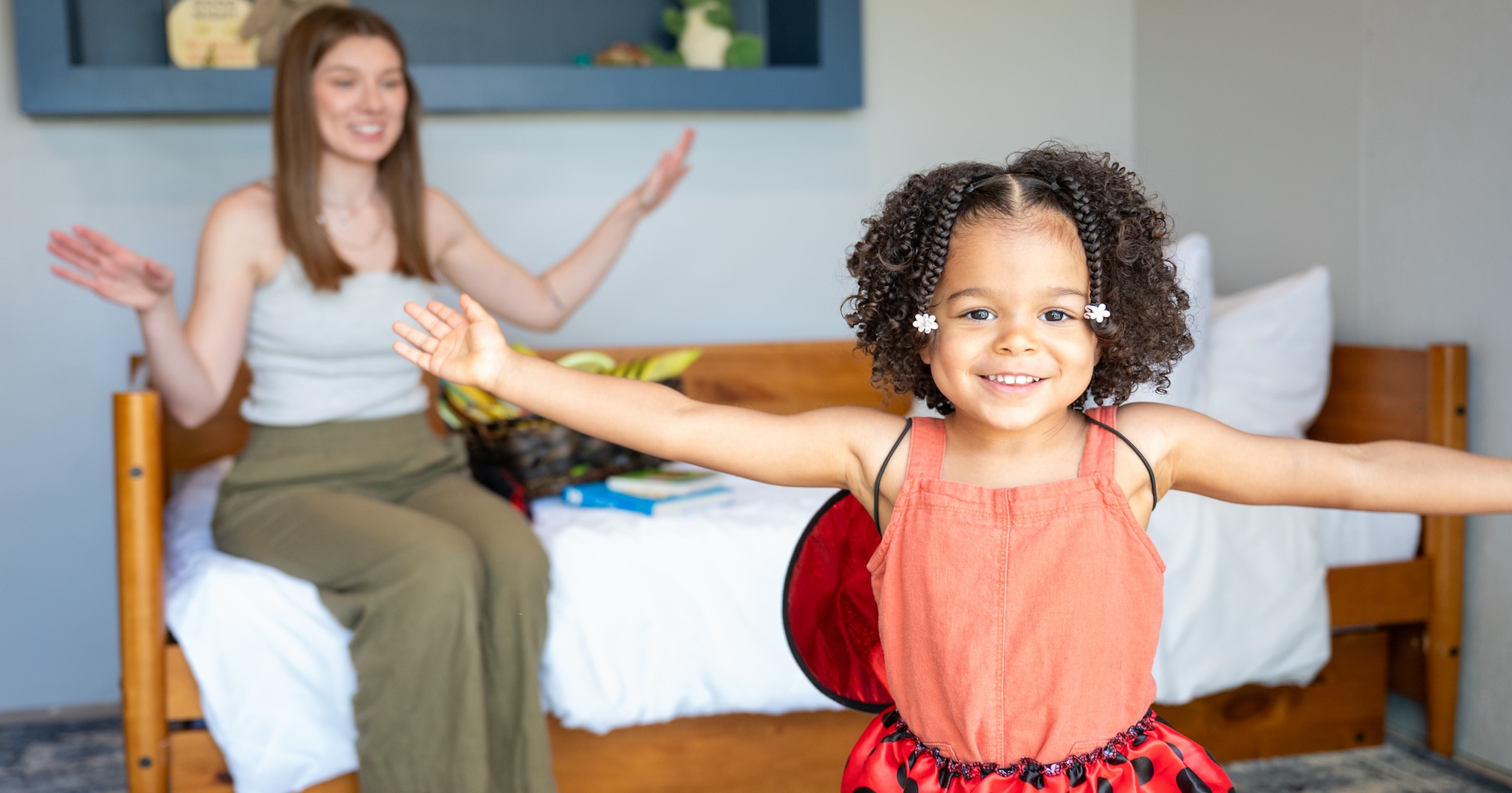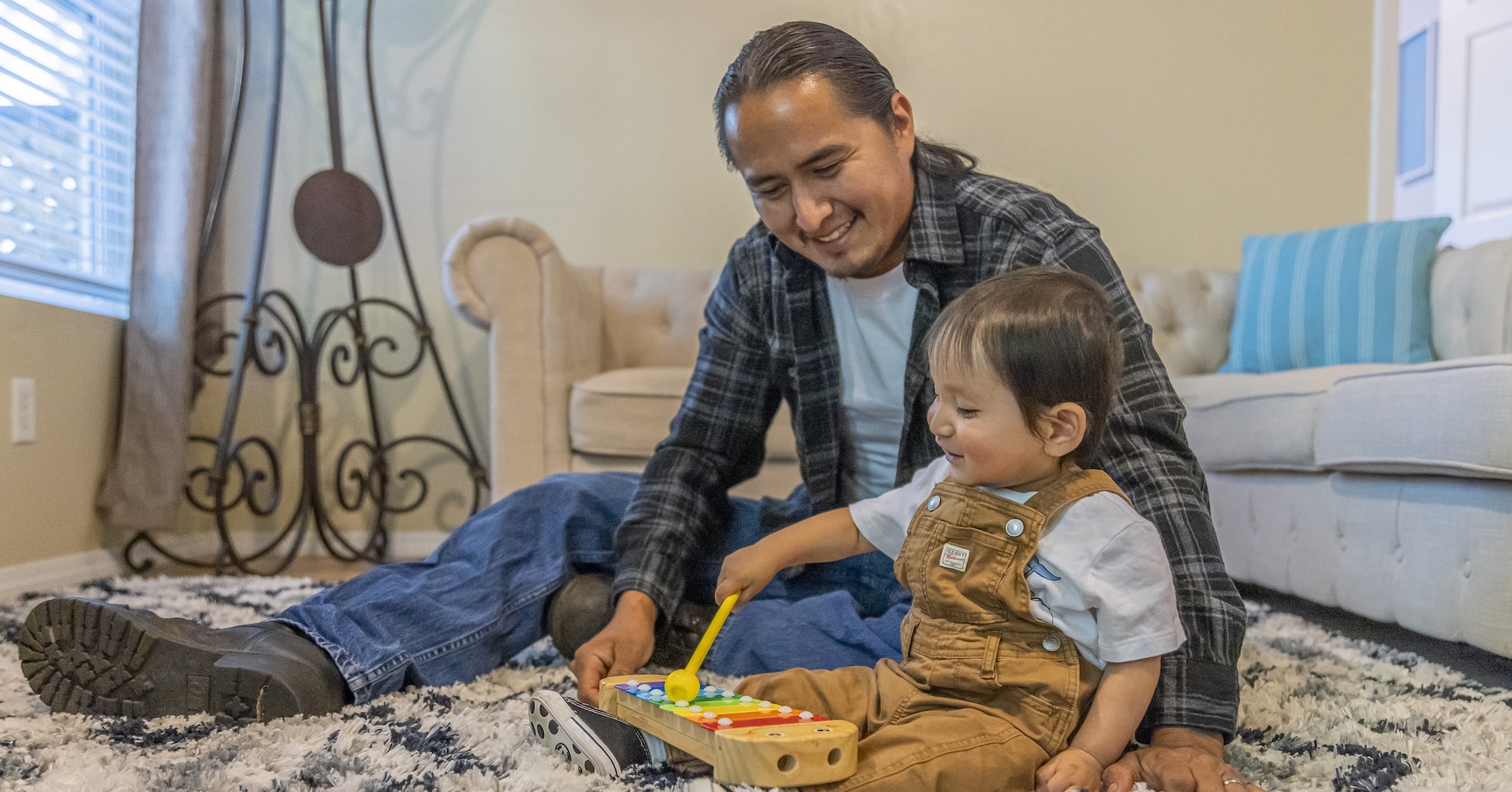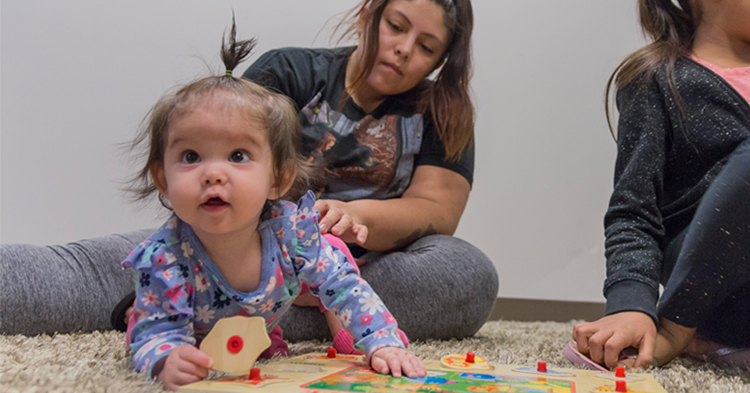
If you’ve been around little kids at the holidays, you’ve seen it happen. They get a shiny new toy, but what they find most interesting is the box it came in.
The American Academy of Pediatrics (AAP) says that’s a good thing. AAP recently came out with a recommendation that the best toys for young children are the simple ones. Flashy electronic toys may catch our attention as adults, but more basic toys like blocks, books, dolls and puzzles are recommended because they help spark a child’s imagination and, most importantly, encourage quality play time between parent and child.
Learning through play
When a baby bats at a mobile overhead, a toddler stacks blocks and knocks them down over and over, or a preschooler dresses up like a firefighter and battles an imaginary inferno, they aren’t just having fun. They are learning.
A child explores and makes sense of the world around him through play. In fact, research has shown that play impacts everything from physical abilities and vocabulary to problem-solving, creativity, teamwork and empathy.
Play time is so important that recently the AAP issued a report urging pediatricians to prescribe play for children in their care. “Play supports the formation of the safe, stable, and nurturing relationships with all caregivers that children need to thrive,” the report said.
Play supports many aspects of physical, intellectual and social-emotional growth. Kathy Hirsh-Pasek, who co-authored the AAP report, challenges adults to change the way they view play and playful learning. “Play helps us learn. Play helps us cope. Play helps us socialize,” Hirsh-Pasek said. “It’s not the opposite of work. We learn via play.”
“Play helps us learn. Play helps us cope. Play helps us socialize.”
Parents can encourage play
As a parent or caregiver, you play a vital role in supporting your child’s healthy early childhood development. That starts with understanding the many important ways that children from birth to age 5 learn through play.
Playing with ordinary household items allows kids to explore their world. With babies, it’s something as simple as grasping an object and holding on to it. As a toddler, your child may begin to arrange objects, which eventually turns into sorting and classifying them. This allows the child to develop thinking, reasoning and problem-solving skills.
Symbolic play starts early when babies begin playing with sounds and eventually turn them into words. And research shows the importance of language development to a child’s future academic success. A child’s vocabulary, attention and general knowledge at ages 3 and 4 are good predictors of reading comprehension levels at ages 9 and 10.
Pretend play is easy to encourage and something many children love to do. They dress up and pretend they are someone or something else, like a firefighter or a dog. This kind of imaginative play is part of their developing social understanding.
Here’s what you can do to encourage play:
- Advocate for play every day. Make sure there are plenty of opportunities and time to play for you and your child.
- Provide the resources for stimulating play. These don’t have to be toys, just plenty of different objects that are available and visible to your little one. Then, let their curiosity take over.
- Encourage your child to use his imagination.
- Join in the fun, but let your child take the lead. Playing together with your child — having back-and-forth conversation, responding to their sounds and movements and interests — is the key to helping them learn.
Learn more:
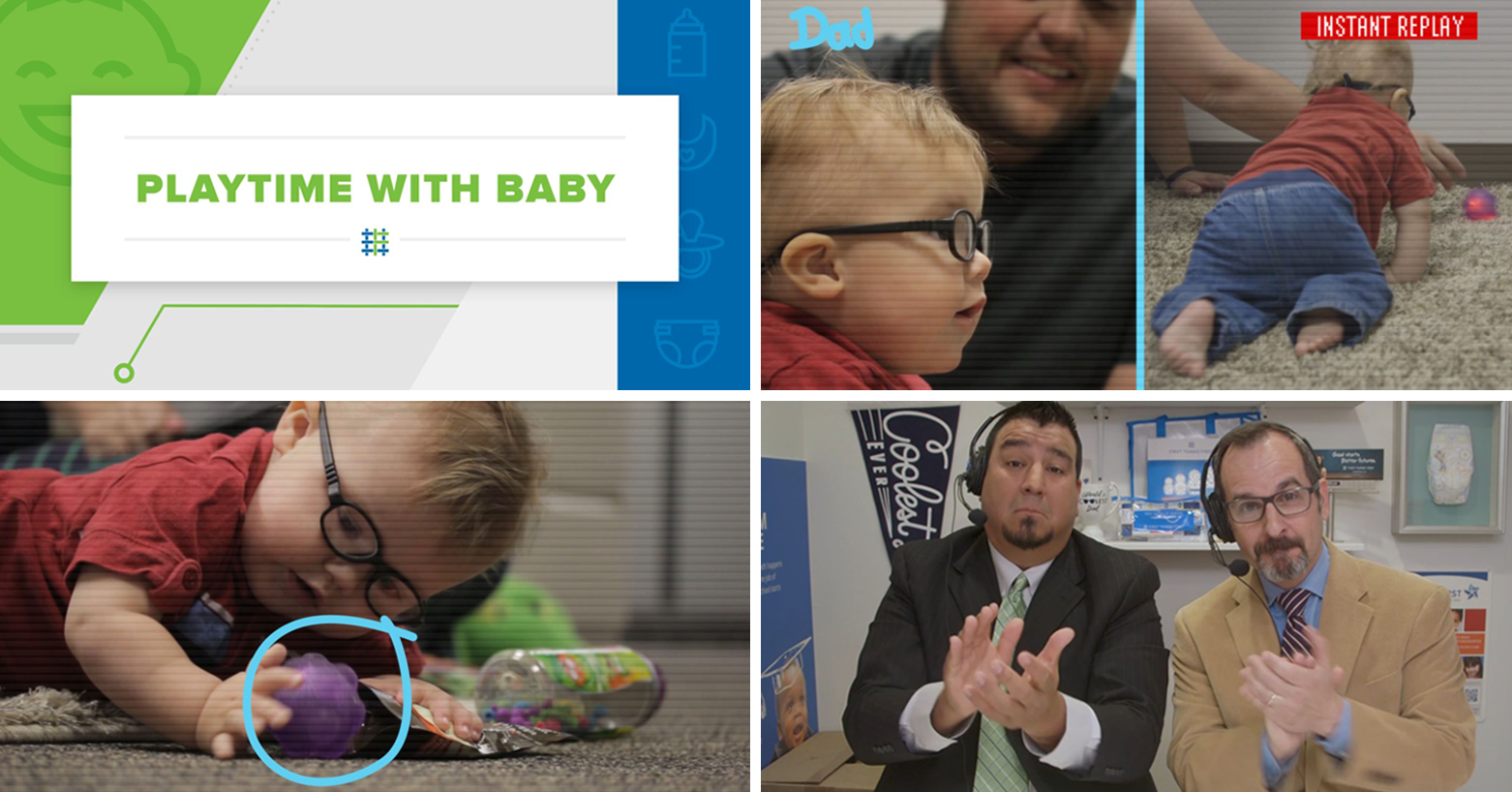
Parents Playbook: Playtime with Baby
Play is one of the best things you can do to support your child’s healthy development.
Check out the video highlights!



